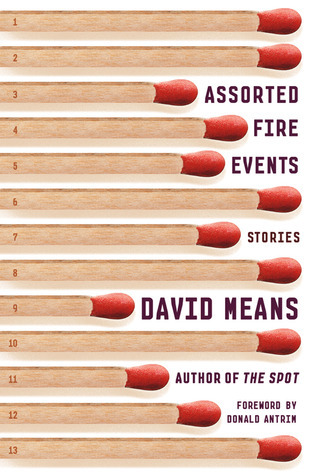What do you think?
Rate this book


192 pages, Paperback
First published January 1, 2000
"The night took on vast, grand proportions; the night was liquid and runny, stretched taught until it was no more than a thin strand of hot white burning his foot and palm."
"He got a vision of her at the cabin they rented upstate, down by the water, toking on hand-rolled smokes and drinking beer until they ended up in the bed, a rattling iron thing, with their clothing off and only that pale summer twilight, half there, half gone, making their skin smooth as whole milk, such a wonderful smoothness, he recalled, especially at the flat of her belly going down to the pubis bone, the hard ridge on both sides, and with the breeze like that, not too hot or too cool coming through the screens"
"Inside the shelter, headlights bled like long sizzling lines of melting ice across the milky Plexiglass"
"Even in the firelight you could see that they were all four skinny in that deprived way, knotty with muscles and the blue-grey shadows of various tattoos. The one who spotted him had just taken a long draw from a quart bottle of beer and was gasping for breath.
Jesus shit, he spoke softly, wiping back a long black clump of hair from his face.
The fuck's this? another said, parting his legs a bit as if to hold steady against an oncoming force. His jackboots crunched on the ballast. He pressed his hands flat against each side of his waist. One of the others stationed himself to the side, running his own palms over the smooth-shorn surface of his scalp in a repeated motion half fidget and half habit."
"A man and a woman embraced by grief. Embracing. The man in a sports coat and blue jeans with that stooped expression, slightly bent beneath some gravitational weight of his own grief; the woman in a long violet dress tightening then loosening against her hips as the breeze rippled the fabric - those hips I'll never forget, I suppose, jutting lightly against his own, as much a part of the embrace as anything. She bent and shifted with the great forces against her the way someone on the deck of a boat must adjust himself to the changing horizon - it was right there before me, the gyroscope of their pain holding the gesture, making it as pure as carved stone, petrified forever, the brass rails holding up the canopy overhead, green-and-white-striped. Suddenly a blinding purplish brilliance lit the front of the parlour afire."
"...the most beautiful sight in the world. The water boiled up around his fist. The slick oily light slide off his skin. His smiling face looked up at me, and his tiny fleck of hair lay pasted to his scalp while my wife, behind me in the hall, softly folded a towel over her arm and outside the summer air moved, tainted with lavender."
"The plot of fire is nebulous and serene, wildly fanatic and calm at the same time, trailing up curtains and along the undersides of carpet padding, taking its own sweet time and then conversely becoming diametric, logarithmic, taking big gulping gorging sweeps of the floorboards and runners - until it sings sweetly the fantastic house-burning lament, blasting out of the windows and licking the roof eaves."
To the guys who spotted him a quarter mile later he came out of the hazy air like a wounded animal, nothing but a shadow down the tracks moving with a strange hobble that didn't seem human. There were four of them, their own shirts off, nursing a small fire of twigs barely producing flames but lots of whitish smoke slinging in the heavy air. Even in the firelight you could see that they were all four skinny in that deprived way, knotty with muscle and the blue-grey shadows of various tattoos. The one who spotted him had just taken a long draw from a quart bottle of beer and was gasping for breath.